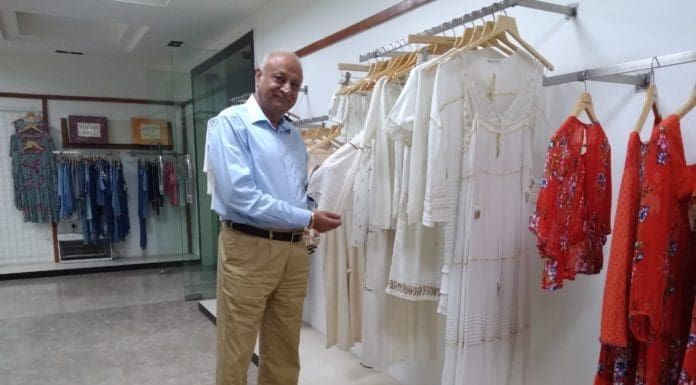Exporters in India are feeling the heat in the global business post tough competition from countries like Vietnam, Bangladesh and other countries. According to Rajiv Dewan, President, Garment Exporters Association of Rajasthan (GEAR), one of the leading forums for the exporters speak on the current trends in the way exporters are seeing the market. Edited excerpts.
How do you see the trend of exporters focusing on the domestic market?
It is not a good sign. For an exporter, the international market is always a better place to play. Someone who had focused only on the global market will never be happy selling the products in the domestic market. However, to be honest, since the exports are down, policies of the government are not that lucrative or supportive, looking to the circumstances for the competition that we have to do with the other Western and European countries. So we are hardly left with anything else rather than coming to the domestic segment.
Due to our stringent laws in export, we are not able to afford a better rate against global competitors. The export market is getting thinner day by day. The buyers are getting better options in terms of pricing from Vietnam, Myanmar, Bangladesh, China, and other countries.
What are the factors that are making you think opportunities are over outside India?
The Government was giving incentives and benefits. However, that too makes us compete with the other countries on the pricing factor. On the other side, the labor cost has gone up in the last four to five years almost by 20% to 25%. Post GST, the price control of all the yarns, fabrics, dyeing and printing is beyond control. They are not leaving aside the benefits of the excise that is vanished from the product, but Government is making no control while the prices are going out of the freeze. At the end of the day, the cost of garment manufacturing has gone up in terms of labor, accessory, and fabric which are an alarming issue now. Thus, exporters, to stabilize the business, are focusing on the domestic market.
In the meanwhile, FDI is also planning to play a big role in India.
It was earlier predicted, that foreign brands are going to enter India market. Now what the Government policies are for the FDI are not clear. Because they are changing the policy every now and then. Till they come out with some fixed planning or programming for the local manufacturers, it is difficult to comment anything on that aspect.
However, in the domestic market Payments are not up to the mark.
Export is a bit better compared to domestic payments and exporting is our first love. In export, what people do normally is on the LC (Letter of Credit) basis. In case if we are getting some favorable aspects like incentives or subsidy we will stick on only with the exports. However, the challenge is the bureaucracy and government doesn’t want to listen to these. Some consideration of the exports should be made obviously because payment wise, working wise, we have been into exports almost from the last four decades, so that has gone into our blood.
Don’t you think in this recent Union textile budget was a friendly one?
Yes tremendously. But on the implementation part, we have to ensure that those are materialized. The Central Government says they had went upon boosting the exports and they are looking for the growth of the SMEs. However, I think it is focused only on electronics or technology sector only. Textile industry as such, they have drastically reduced the schemes and advantages. To our surprise, the new state government here in Rajasthan is supporting us and they are ready to listen to our issues and make efforts to resolve the same.
What is your expectation from the Central Government?
The Central Government should realize the ground-level reality. They have to understand that we Indian exporters are competing with the global markets, which means that the Indian government should compete with other government in providing facilities. Earlier they said ‘no’ which is fine, However, now, the issue is the sustainability and the government cannot expect us to invest in infrastructure for increasing the export. Rather they should help us reduce our expenses.
On the positive side, we are happy with many state governments coming up with special policies for Textile industry as a whole. As known, textile industry is one of the key industry which provides employment, including women. The government should listen from the industry beyond any social and economic and geographical factors. Not just listening to one industry body and framing the policies will never be good.
By – B Swaminathan

